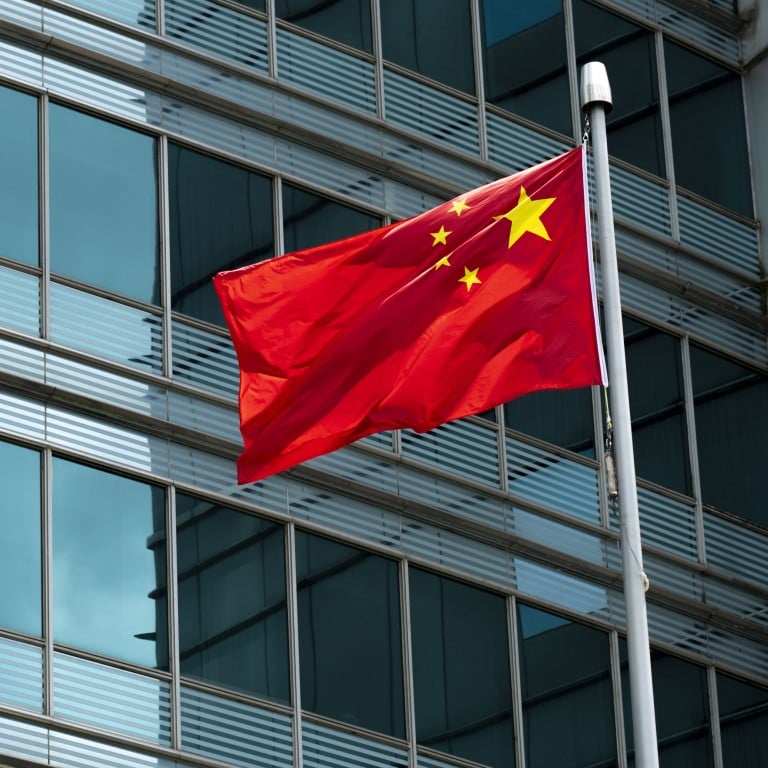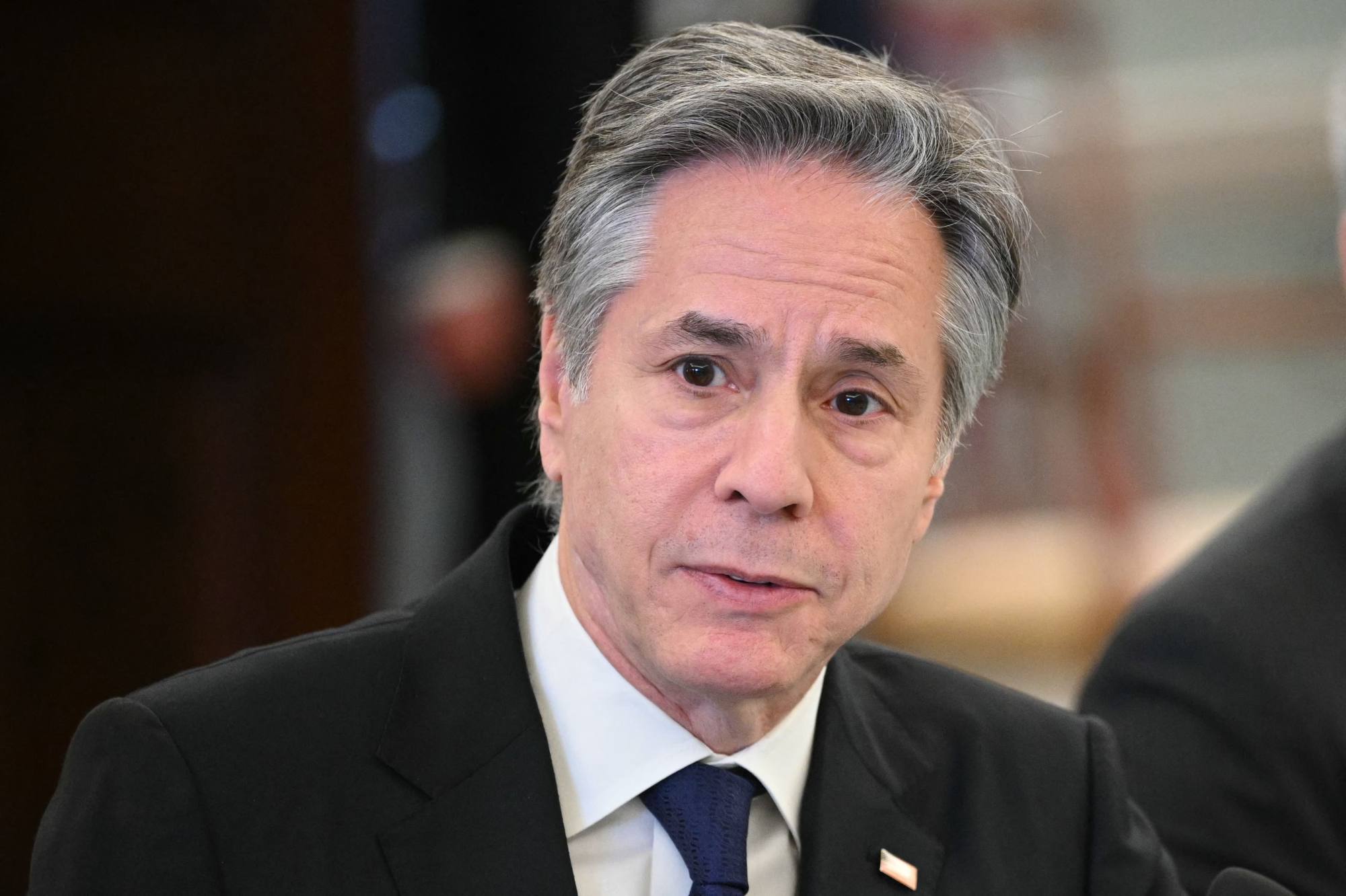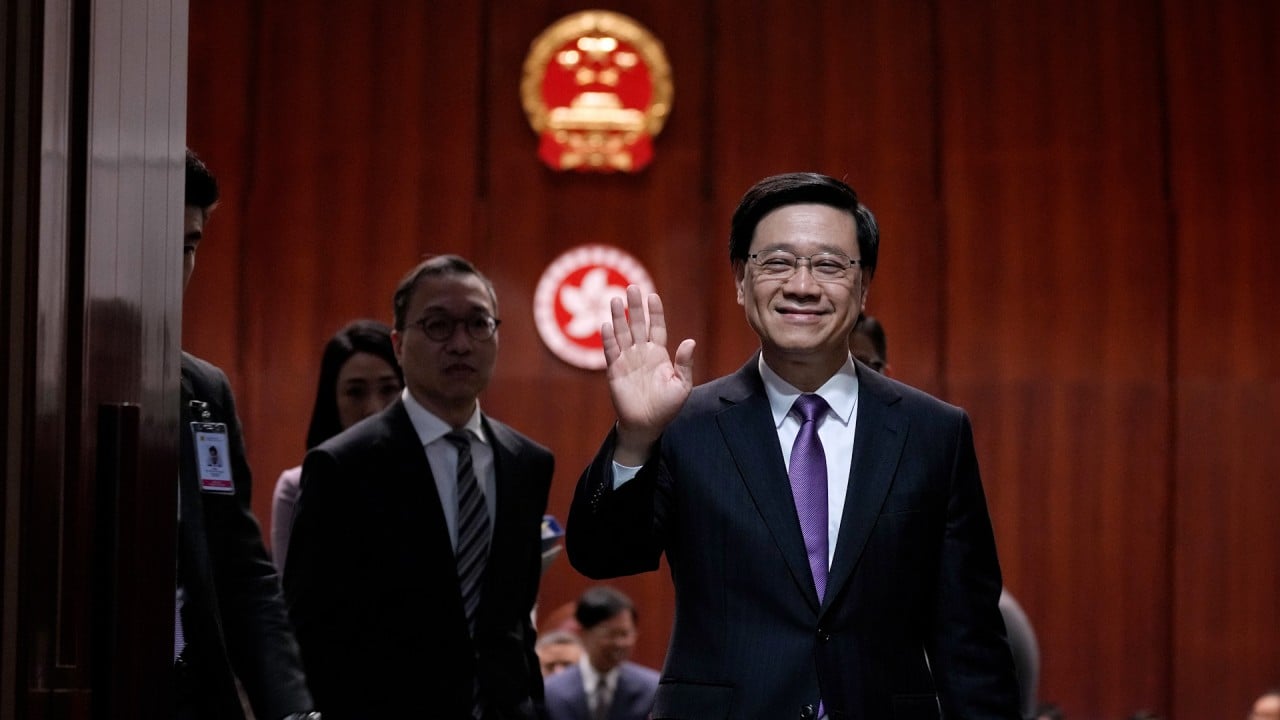
Beijing slams US plan to impose visa restrictions on Hong Kong officials over Article 23 law, calling it ‘despicable’ attempt at bullying
- Chinese foreign ministry’s arm in Hong Kong also hits back at US Secretary of State Antony Blinken’s criticism of domestic national security law
- Spokesman accuses US of trampling ‘on principles of international law and basic norms of international relations’
A spokesman for the commissioner’s office of China’s foreign ministry in Hong Kong said on Saturday that it strongly objected to the United States publishing a recent policy report that criticised the new legislation and the city’s political climate.
Will Hong Kong politicians be targeted over role in Article 23 law?
The office also took aim at US Secretary of State Antony Blinken’s remarks that Washington was considering travel curbs on Hong Kong officials deemed “responsible for the intensifying crackdown on rights and freedoms”.
“The relevant acts and deeds have confused right and wrong, stigmatised Hong Kong’s national security law … smeared the rule of law, democracy, freedom and human rights in the city,” the office’s spokesman said.
“It has grossly interfered with the city’s affairs and China’s internal affairs, and seriously tramples on the principles of international law and basic norms of international relations.”
The office slammed Washington for its “usual tactic” of releasing an annual report on Hong Kong, which it called “another despicable footnote of US hegemony and bullying” and said the country liked to “ask others to take medicine when it itself is getting sick”.
“The United States is striving to stage a Hong Kong-related script made up of lies in an attempt to deceive the world for undeserved fame,” he said.
“Little does it know that no one has bought into this annual farce. It will only get boos and ridicule, and it should have been swept into the dustbin of history!”

The spokesman said that instead of acting like the world’s policeman and issuing the annual report, the US should look at itself and “take stock of the illusion of judicial independence, vicious partisan fighting, disregard for the rule of law, and the illusion of democracy and freedom and stop being complacent”.
He added that Beijing would remain unfazed in the face of any external pressure.
The spokesman said all “slander, noise, pressure or sanctions” would be ignored, decrying such acts as a “waste of effort”.
“Using Hong Kong issues to stage a clumsy show of hypocrisy and its own double standards will only overdraw the US’s little remaining face and credibility!” he added.
Hong Kong authorities also slammed the US for “untruthful remarks, slanders and smears”.
“The government strongly condemns and rejects the wanton slander about and political attacks in the US’ so-called ‘2024 Hong Kong Policy Act Report’ and the relevant statement,” a spokesman said.
“The US once again told fallacies about Hong Kong by replacing the rule of law with political manipulation and confounding right and wrong, and blatantly interfering in Hong Kong affairs which are entirely China’s internal affairs.”
The government said Washington’s efforts would “only expose its slyness and would never succeed”, arguing the proposed restrictions were a “despicable political manipulation” that sought to intimidate officials.
“[The government] despises such so-called ‘sanctions’ and ‘visa restrictions’ by the US and is not intimidated by such despicable behaviour,” it said, vowing to continue safeguarding national security.
Blinken said on Friday that he would once again certify Hong Kong as ineligible for special consideration under US law that it had enjoyed before its handover to China on July 1, 1997, and had remained in place for more than two decades since.
He accused China of taking continuous action over the years against Hong Kong’s promised high degree of autonomy and democratic institutions, as well as rights and freedoms.
Blinken said the domestic national security law had “broad and vaguely defined provisions regarding ‘sedition’, ‘state secrets’, and interactions with foreign entities”.
“These provisions could both be used to eliminate dissent inside Hong Kong and applied outside its borders as part of [China’s] ongoing campaign of transnational repression,” he said.
The US policy act, also referred to as the Hong Kong Relations Act, gives Washington discretion to treat the city separately from mainland China in areas such as trade and economic engagement.
In the report published on Friday, the State Department said Beijing had taken “new actions that directly threaten US interests in Hong Kong”.
Some 84,000 Americans living in the city faced “heightened risk of arrest, detention, expulsion or prosecution” if they publicly criticised China, it added.
The report also acknowledged that some of the past year’s 35 arrests – “based on publicly available information” – were made “pursuant to the colonial-era statute on ‘sedition’ and the offences listed” in the 2020 national security law.
US to put new visa limits on Hong Kong officials in wake of Article 23
The department submits a report annually to Congress as part of the US Hong Kong Policy Act, which was enacted in 1992, along with the certification process.
Frank Jannuzi, president and CEO of the Maureen and Mike Mansfield Foundation think tank and a former Senate aide to US President Joe Biden, told the Post on Saturday that visa restrictions were not a sanction.
Instead, he said he felt the Biden administration was still essentially in a “wait-and-see” mode with respect to the Article 23 legislation.
“How often the Hong Kong government enforces the law, under what circumstances, and how any cases are ultimately adjudicated, will likely have a major impact on whether the US chooses to impose any new restrictions or sanctions,” he said.
Jannuzi also warned both sides should be wary of spiralling tit-for-tat measures as they would be monitoring each other closely.
“US and Hong Kong authorities should appreciate that going forward, the US and Hong Kong will surely be watching each other for signals,” he said.
“Just as ‘negative’ moves such as bounties or sanctions can trigger negative responses, positive moves can also be reciprocated. I hope Hong Kong and the US can avoid a negative spiral.”


